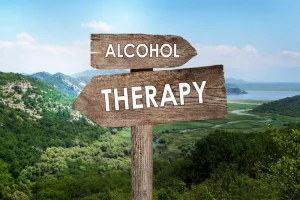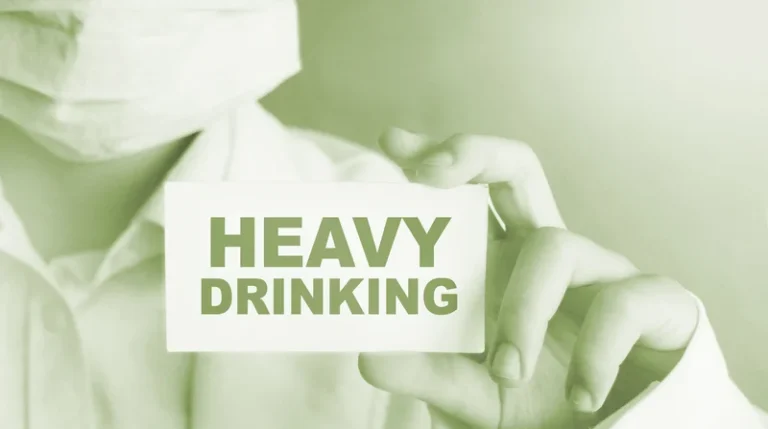
And the list of potential tramadol withdrawal symptoms has continued to grow. The most serious complication is having an accidental opioid overdose if you stop taking an opioid and then return to using it. Sometimes, withdrawal symptoms are so severe that people return to opioid use to make symptoms stop.
Drug and Alcohol Withdrawal Ausmed
When done right, a taper should provide a smooth transition off of tramadol. Between 2005 and 2011, the number of tramadol-related emergency room visits involving misuse increased by 250%. According to government statistics, tramadol prescriptions increased by 88% in just five years, from 23.3 million https://ecosoberhouse.com/ in 2008 to 43.8 million in 2013.

Treatment for Cannabis Withdrawal
Additionally, exercise can help to restore the brain’s chemical balance because it releases endorphins, and a balanced diet can help to restore healthy body and brain functioning. Maintaining a healthy sleep schedule can also improve emotional health and help with healing during withdrawal. Focusing on mental and physical health can significantly impact an individual’s recovery. Symptoms of an opioid withdrawal typically begin to improve within 72 hours and significantly decrease within a week depending on their severity. Continue reading to discover what to expect during opioid withdrawal, which treatment options are available and how MedMark Treatment Centers can help.

Complications
It’s not unusual for people coming off cannabis to become aware of the negative consequences of their drug use or the emotional states it was masking. For example, some people who cease marijuana use after several years feel that they’ve wasted a considerable part of their life. Many former users report having drug cravings in the early days of quitting cannabis.

How long does tramadol withdrawal last?
In one study, 75.7% of participants reported an intense craving for marijuana when trying to quit. These cravings can vary from person to person but tend to include a persistent desire to use the substance. Furthermore, as John C. Umhau explains, «The increased potency of cannabis over the years has caused more people to have significant withdrawal symptoms when they try to quit.» When someone drinks alcohol for a prolonged period of time and then stops, the body reacts to its absence.
- Pain can complicate withdrawal, so you should work with your doctor to develop a plan to handle it.
- John C. Umhau, MD, MPH, CPE is board-certified in addiction medicine and preventative medicine.
- Withdrawal is the process of cutting out or cutting back on alcohol or drugs after a period of prolonged or excessive use.
- When the drug is suddenly stopped, the body will go into shock and the individual will experience withdrawal symptoms.
- At MedMark Treatment Centers, we offer outpatient medication-assisted treatment for opioid use disorder using buprenorphine and methadone.
For your best chances of success and to ease your symptoms, we urge you to detox under our medical supervision so that we can monitor your health and provide you with resources that ease the symptoms. If you need to support someone through withdrawal, talk to a doctor (you can search for a doctor in your region here), another is sneezing a sign of withdrawal health professional, or a drug and alcohol service before starting. Always talk about withdrawal with your doctor or with an alcohol and other drug treatment service first.
Common Alcohol Withdrawal Symptoms
Opiate withdrawal can be prevented by avoiding opiate drugs altogether. For those who are already taking opiates, it is important to follow the prescribed dosage and to not abruptly stop taking the drug. If the individual does need to stop taking the drug, it is important to do so gradually and under the supervision of a doctor. It is possible that during opiate withdrawal, the body is more sensitive to allergens and therefore more likely to release histamine and cause sneezing. This is because opiate withdrawal can cause changes in the immune system, making it more reactive. It’s your primary care doctor telling you that other people have no problems at all going off these drugs, then qualifying his statement with, “But, I mean, I believe you,” which somehow implies he doesn’t.
When Drug Withdrawal Symptoms Become Dangerous
- They can determine if something else might be contributing to your symptoms and decide if you need prescription medications or IV fluids to avoid serious complications.
- Ideally, this professional should have expertise in substance issues, such as an American Board of Addiction Medicine (ABAM)-certified physician or a psychiatrist.
- A doctor may also prescribe a sedative drug, such as a benzodiazepine, to help reduce withdrawal symptoms such as restlessness or agitation.
- In one study, 75.7% of participants reported an intense craving for marijuana when trying to quit.
- Addiction, also known as dependence, is when someone finds it hard to stop doing something that makes them feel good.
When people use several therapeutic or illicit drugs at the same time, they can develop multiple physical dependencies. If you have been combining or alternating your tramadol dose with another painkiller, like hydrocodone, your opioid dependence may be more severe. But in recent years, many reports of tramadol-related emergency room visits have been reported.

But if you have other health conditions, the effects can lead to serious problems. For example, a higher pulse or blood pressure can cause issues if you have a heart condition. Your doctor may diagnose withdrawal based on your symptoms and a physical exam. The neurons in your brain change to the point where, without the drug, they don’t work the way they should.